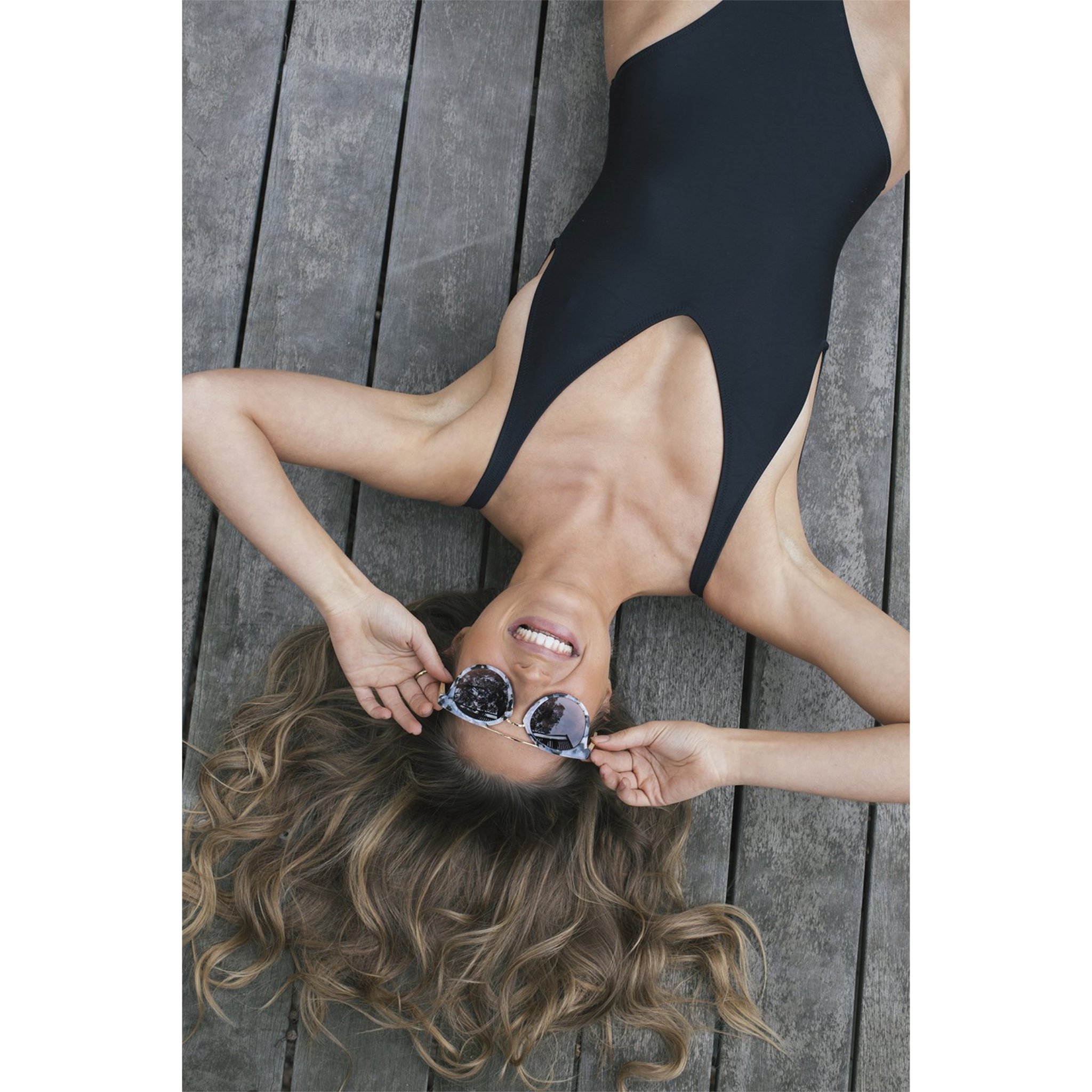Seeing Through Sustainable Lenses
With fall in full swing, we are trading in string bikinis for boots, dusting off puffers that had been packed away, and sporting layers on layers. Even though it is disappointing to see summer style go, there are some things we can take with us into the chillier months. Sunglasses are a tried-and-true accessory that transcend seasons, from days spent lounging on the beach to taking a leisurely stroll in the crisp autumn air.
Most sunglasses are crafted from materials such as petroleum-based plastics, which put off harmful fossil fuels and create micro-plastic by-products. As plastic is also one of the most cost-effective resources, big name brands across the board commonly use it even though its impact is destructive to the environment.
Fortunately, as sustainability is a movement that influences all aspects of the fashion industry, there are safer alternative materials for this staple accessory. The primary difference between ethical eyewear and unsustainable eyewear begins with the resources used. Below, PhotoBook has curated the most progressive eyewear brands, which all delve into more natural methods so that you can truly see life through a more sustainable lens.
Woodzee
Woodzee sunglasses are made out of wood and bamboo, resources that are gentler on the planet than plastic and certainly more renewable. If they do opt into acetate, it is all plant-based and their resources are ethically sourced. The company showcases dynamic options for men and women, but not only do they get points in the style department, they take their values one step further by implementing a recycle program. Buyers can recycle an old pair of Woodzee sunglasses by sending them back to the company headquarters, where they can take on a new life.
Where to Buy: https://fave.co/3qtYZE8
Lexi Plant Based Acetate and Wood Glasses
Source: https://www.woodzee.com/collections/women
Genusee
Genusee decided to be the change the company wanted to see in the eyewear space by creating all of their frames from post-consumer recycled (rPET) plastic water bottles. In fact, every purchase recycles 15 water bottles, which are commonly known as single-use plastic -- the most injurious plastic that exists for the earth. Each product is made in Flint, Michigan, to support the local economy and assist financially in the Flint Water Crisis. Genusee didn’t just stop there; they also donated a percentage of profits to the Community Fund of Greater Flint. Through promoting a circular system, through reusing materials and their recycle program, Genusee is setting a spectacular example for other eyewear brands
Where to Buy: https://fave.co/30duAQ5
Water Warrior Green + Green Gradient Sunglasses
Source: https://genusee.com
Amber + Brown Gradient Sunglasses
Source: https://genusee.com
Sticks and Sparrow
For a trendier, yet still earth-friendly option, look no further than Sticks and Sparrow. The Australian brand revolves around a human connection to nature. They make their glasses out of bamboo, reclaimed wood, and cork, as well as plant-based acetates. Cork is an especially unique resource, as its extraction methods do not harm the trees’ development. Not only does sustainability influence production for Sticks and Sparrow, but it also influences the aesthetics of their designs too. Their “Harvest” collection features hand-pressed flowers and greenery, which have been molded into the frames, so you can show off your appreciation for the environment with style.
Where to Buy: https://fave.co/3bZLnIs
Poppy Sunglasses
Source: https://sticksandsparrow.com.au/collections/sunglassess?page=2
Solo Eyewear
Solo prides itself on responsible eyewear and its generous #LiveAndGive philosophy. In order to avoid contributing to the excessive amounts of plastic that are being produced, these sunglasses contain recycled or repurposed materials. The company’s mission is not solely to give back to the environment, but also to give back to the millions of people around the world who do not have access to proper eye care. To date, SOLO has restored vision for over 15,000 people in need across 32 countries by donating a percentage of all profits.
Where to Buy: https://fave.co/3F1ESRK
Malawi Sunglasses
Source: https://www.soloeyewear.com/collections/gals-best-sellers
Israel Maplewood Sunglasses
Source: https://www.soloeyewear.com/collections/gals-best-sellers
Article by Kayla Curtis-Evans, Contributing Sustainable Editor PhotoBook Magazine
Tearsheets by Alexa Dyer, Graphic Design Intern, PhotoBook Magazine











